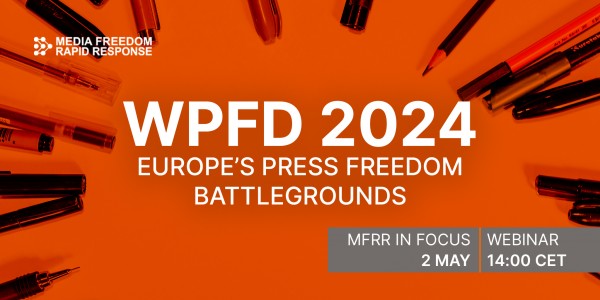At least 35 journalists have been injured in violent clashes that have rocked Ukraine’s capital since Sunday, the Kiev-based Institute for Mass Information (IMI) said today.
Journalists covering the clashes reported being hit by rubber bullets and shrapnel from stun grenades, and having suffered beatings at the hands of members of the security services, the group said in a running tally on its website.
Hundreds of people have reportedly been hurt in the violence, in which helmeted protestors armed with rocks and Molotov cocktails have battled security forces following President Viktor Yanukovych’s decision to sign sweeping anti-protest legislation that recriminalises libel and severely restricts freedom of expression and assembly.
Police yesterday detained RFE/RL correspondents Dmytro Barkar and Ihor Iskhakov before releasing them hours later. The journalists said they were beaten while in custody, RFE/RL reported. The outlet’s Radio Svoboda also posted footage on its website that showed police targeting journalists with rubber bullets, the Kyiv Post said.
The International Press Institute (IPI) and its affiliate, the South East Europe Media Organisation (SEEMO), condemned the violence against journalists.
“We remind all parties involved that journalists are never legitimate targets and we demand that authorities hold accountable anyone found to be targeting journalists,” IPI Press Freedom Manager Barbara Trionfi said. “We also implore journalists covering these clashes to be as mindful as possible of the dangers that surround them and we urge lawmakers to reverse the draconian measures adopted last week, which represent a severe threat to democracy in Ukraine.”
Yanukovych on Friday signed the anti-protest legislation, which parliament hastily passed one day earlier without debate and by a show hands amid scuffles between lawmakers on the parliament floor. The package is aimed at ending protests that have gripped Kiev in the nearly two months since Yanukovych froze plans to sign an association agreement with the European Union.
The legislation has drawn widespread criticism from press freedom and free expression monitors, European officials and the U.S. State Department.
U.N. High Commissioner for Human Rights Navi Pillay in a statement today said the legislation fell short of international human rights standards and she called for authorities to suspend the legislation and for parties in Kiev to engage in dialogue to avoid further escalation and unrest.
“I am particularly concerned by the potential that these laws have to curtail the right to freedom of expression and freedom of assembly, the right to information, the right of civil society to work freely,” she said. “The laws also have the potential to result in impunity for human rights violations.”
Pointing specifically to provisions that require NGOs that receive international funding to register as “foreign agents”, Pillay added: “Such provisions will roll back the enjoyment of human rights for the people of Ukraine, stifle debate and dissent, and jeopardise the democratic achievements of the past two decades.”


